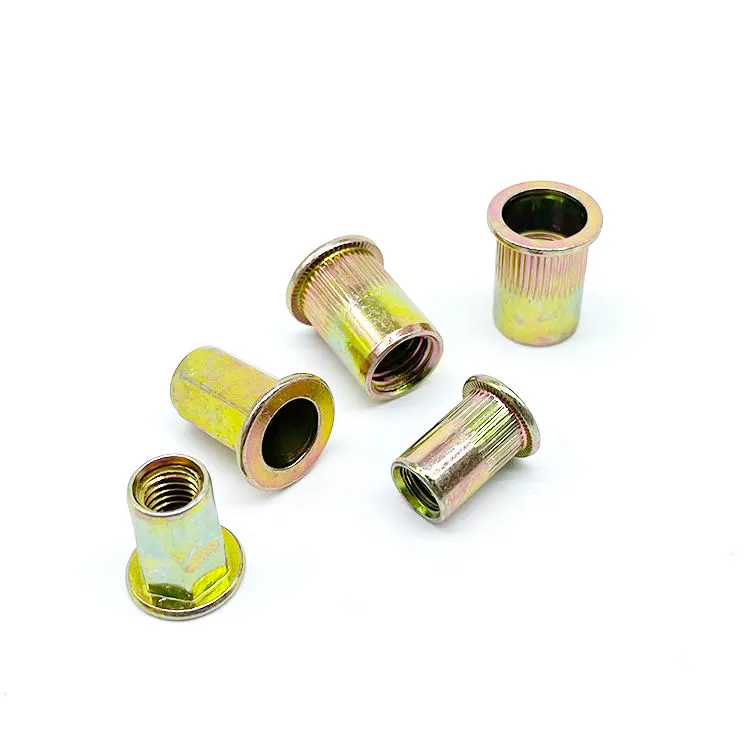

m5 washer
Sep . 25, 2024 14:43 Back to list
m5 washer
Understanding the M5 Washer A Small Yet Crucial Component in Engineering
When delving into the intricate world of engineering and manufacturing, it is easy to overlook the significance of seemingly minor components, such as washers. Among these, the M5 washer plays a pivotal role in various applications, ensuring structural integrity, load distribution, and preventing damage to sensitive surfaces. In this article, we will explore the M5 washer's specifications, materials, applications, advantages, and installation considerations.
What is an M5 Washer?
An M5 washer refers to a flat washer designed to accommodate a screw or bolt with a 5 mm diameter. Washers are essential components that serve as spacers, protectors, and load distributors in mechanical assemblies. The M in M5 washers stands for metric, indicating that these washers are designed following the metric system, which is widely used in engineering across the globe.
M5 washers come in various types, including flat washers, lock washers, and spring washers. Each type serves its purpose, but flat washers are the most commonly used due to their versatility.
Materials Used for M5 Washers
M5 washers can be manufactured from a variety of materials, each chosen based on the application's specific requirements. Some common materials include
1. Steel Often used for general-purpose applications, steel washers are strong and durable. They may also be zinc-plated or coated to resist corrosion, making them suitable for outdoor or humid environments.
2. Stainless Steel For applications that require enhanced corrosion resistance, stainless steel M5 washers are preferred. They are ideal for marine, food processing, and chemical industries, where exposure to moisture and corrosive substances is common.
3. Plastic Plastic washers, such as those made from nylon or polyethylene, are beneficial in electrical applications where insulation is necessary. They are lightweight and resistant to chemicals, making them ideal in specific environments.
4. Aluminum Aluminum washers are lightweight and resistant to corrosion, making them suitable for applications in the automotive and aerospace industries.
Applications of M5 Washers
M5 washers are widely used across various industries due to their fundamental role in ensuring the stability and functionality of connections. Common applications include
1. Automotive In vehicles, M5 washers are used to secure bolts in engines, body panels, and other assemblies, ensuring that parts remain tightly fastened.
2. Electronics In electronic devices, these washers help prevent short circuits by ensuring that screws do not come into direct contact with sensitive surfaces.
m5 washer

3. Construction M5 washers are used in various architectural applications, from securing beams to fastening roofing materials, contributing to the overall sturdiness of structures.
4. Aerospace In aerospace applications, where weight and strength are critical, M5 washers assist in maintaining the integrity of components under extreme conditions.
Advantages of Using M5 Washers
Employing M5 washers in mechanical assemblies provides several advantages
1. Load Distribution Washers help distribute the load exerted by fasteners over a larger surface area, reducing the risk of localized deformation and damage to materials.
2. Surface Protection By acting as a barrier between the fastener and the material, washers protect surfaces from scratches, dents, and wear.
3. Vibration Resistance Certain types of washers, such as lock washers, help prevent loosening due to vibrations, which is crucial in dynamic environments.
4. Ease of Installation M5 washers can be easily installed with standard tools, facilitating assembly and maintenance tasks.
Installation Considerations
When installing M5 washers, several factors must be considered to ensure effectiveness
1. Correct Sizing It is essential to choose washers that match the size and type of the bolt or screw being used to provide adequate support.
2. Material Compatibility Ensure that the washer's material is compatible with the surfaces it will contact to prevent corrosion or chemical reactions.
3. Proper Torque When fastening, apply the appropriate torque to prevent over-tightening, which can lead to damage of both the washer and the components involved.
In conclusion, the M5 washer, often taken for granted, is an integral part of many mechanical assemblies. Its role in load distribution, surface protection, and overall structural integrity cannot be underestimated. Understanding its material types, applications, and installation tips can help engineers and manufacturers optimize their designs and ensure reliable performance. Whether in automotive, aerospace, or construction, the M5 washer proves that even the smallest components can have a significant impact.
Latest news
-
Hot Dip Galvanized Bolts-About LongZe|High Strength, Corrosion Resistance
NewsJul.30,2025
-
High-Strength Hot Dip Galvanized Bolts - Hebei Longze | Corrosion Resistance, Customization
NewsJul.30,2025
-
Hot Dip Galvanized Bolts-Hebei Longze|Corrosion Resistance&High Strength
NewsJul.30,2025
-
High-Strength Hot-Dip Galvanized Bolts-Hebei Longze|Corrosion Resistance&High Strength
NewsJul.30,2025
-
Hot Dip Galvanized Bolts-Hebei Longze|Corrosion Resistance&High Strength
NewsJul.30,2025
-
Hot Dip Galvanized Bolts - Hebei Longze | Corrosion Resistance, High Strength
NewsJul.30,2025

